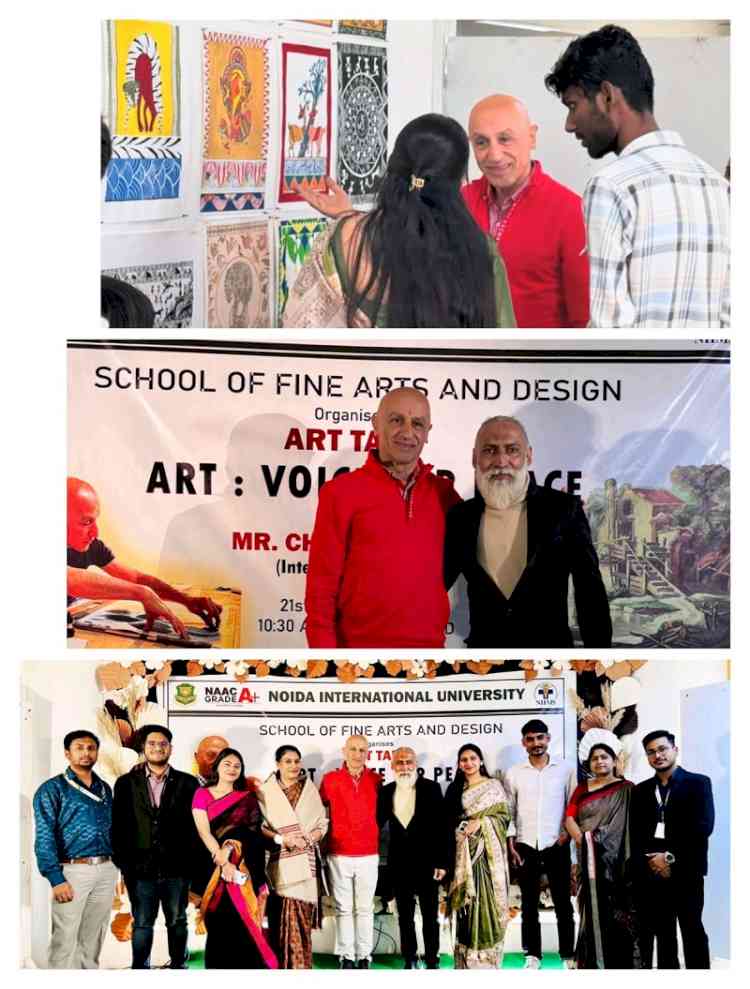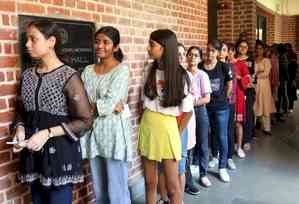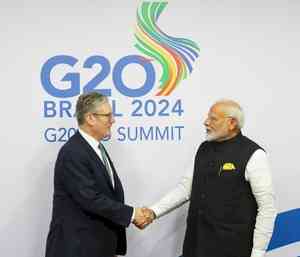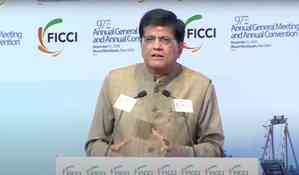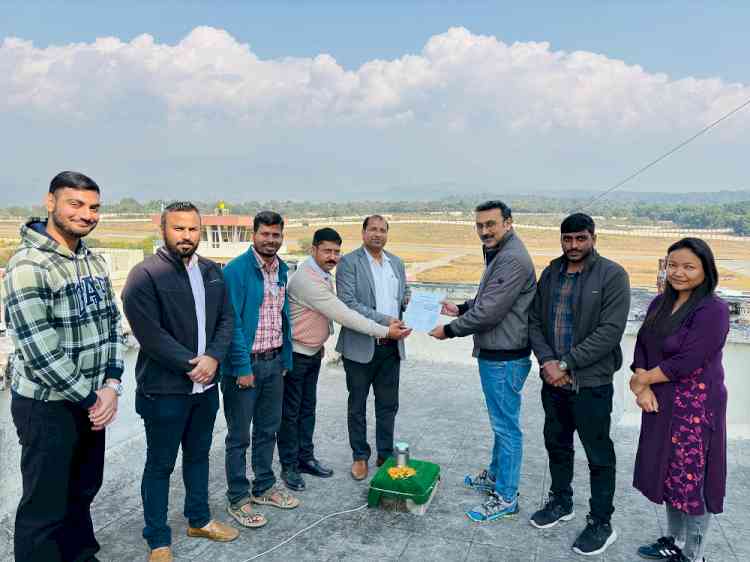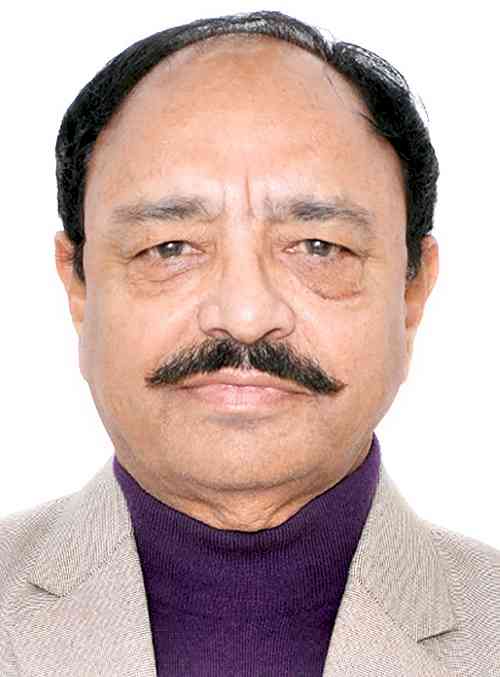GITAM Bengaluru inaugurates Drone Technologies Lab amidst Mega Conclave on Academic Research on Innovation and Collaboration
Carrying the beacon of intellectual fervor, the Drone Technologies lab was inaugurated at GITAM (Deemed to be University) Bengaluru campus, furthering its commitment to innovation and technological advancement during a Conclave on Academic Research (CAR). The conclave, organized under the aegis of the Department of Computer Science and Engineering, welcomed a prestigious panel of speakers, who offered profound insights into cutting-edge research and facilitated collaborative endeavors. Prof. Mangal Kothari, a Professor at IIT Kanpur, officiated the ceremony alongside Dr. KNS Acharya, the Pro Vice Chancellor of GITAM (Deemed to be University), Bengaluru Campus.
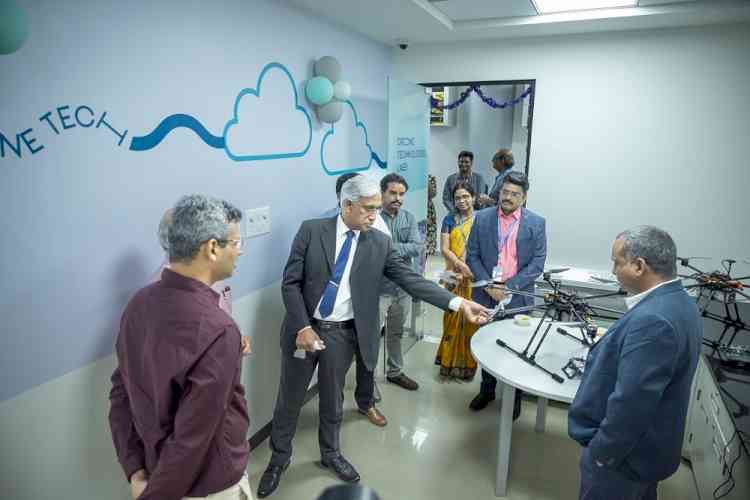
Bengaluru, March 13, 2024: Carrying the beacon of intellectual fervor, the Drone Technologies lab was inaugurated at GITAM (Deemed to be University) Bengaluru campus, furthering its commitment to innovation and technological advancement during a Conclave on Academic Research (CAR). The conclave, organized under the aegis of the Department of Computer Science and Engineering, welcomed a prestigious panel of speakers, who offered profound insights into cutting-edge research and facilitated collaborative endeavors. Prof. Mangal Kothari, a Professor at IIT Kanpur, officiated the ceremony alongside Dr. KNS Acharya, the Pro Vice Chancellor of GITAM (Deemed to be University), Bengaluru Campus.
Other distinguished luminaries such as Prof. U.B. Desai, Former Director of IIT Hyderabad; Prof. S Sundar, Director of NIT Mizoram, and Chair Professor at IIT Madras; and Prof. Pramod Kumar Singh, Professor at IITM Gwalior and Associate Professor at IISc Bengaluru, graced the Conclave.
GITAM (Deemed to be University) also signed a Memorandum of Understanding (MoU) with DronaVyuh Technology, fostering collaboration between academia and industry experts in drone-related projects. The partnership aims to explore areas such as battery life, flight stability, and autonomous navigation, propelling innovation in fields like deliveries, search and rescue operations, and weather monitoring. Research into noise reduction and air traffic management paves the way for broader social acceptance and integration of drones into everyday life.
The inauguration of the drone lab aligns with GITAM’s broader vision of advancing interdisciplinary research initiatives, as evidenced by the Multidisciplinary Unit of Research in Translational Initiatives (MURTI) laboratory recently inaugurated by Dr. Kota Harinarayana, Programme Director, and Chief Designer of the Light Combat Aircraft (LCA) Tejas program and U.S. Consul General Chennai Christopher W. Hodges.
Prof. U.B Desai enlightened researchers on innovation and entrepreneurship, various funding opportunities, and insights on CRISPR and Quantum Computing technologies. Additionally, Professor Desai showcased an autonomous electric vehicle [buggy] developed at the Indian Institute of Technology Hyderabad for potential intra-campus transportation purposes.
Prof. P.K. Singh highlighted optimization techniques and their applications to various real-world problems. He specifically discussed scheduling challenges related to electric vehicle charging mechanisms.
Prof. Mangal Kothari presented the research and development activities related to autonomous vehicles and robotics at his organisation. He showcased prototypes of various drones and robotic systems his team engineered.
Prof. Sundar underscored the significance of Mathematics in addressing any research issues, particularly in computer science and related fields. He exhibited the mathematical modelling of human movement, traffic examination, pedestrian modelling, and other related areas.
Prof. Soma Biswas presented on current trends in computer vision research. She demonstrated and discussed the object detection problem through vehicle identification. The training and testing of vehicles using the ‘Train and Ignore’ principle was highlighted with practical examples.


 City Air News
City Air News 
